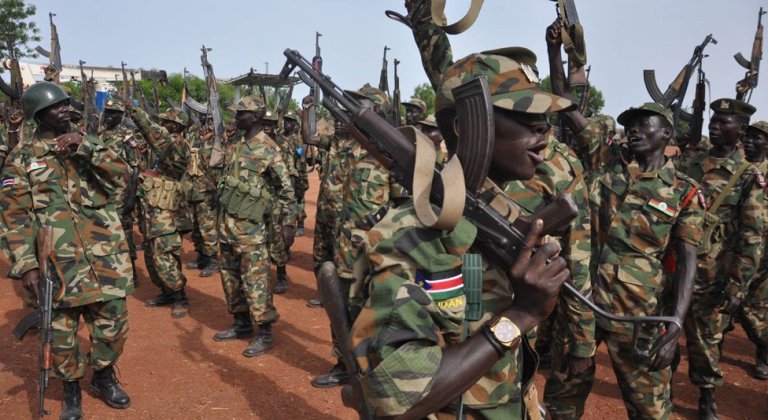Warring parties are responsible for South Sudan tragedy : UN

June 21, 2017 (NEW YORK) – The government and the armed opposition bear the responsibility for South Sudan humanitarian tragedy and political instability, said the head of UN Peacekeeping Department on Wednesday.
“We must not lose sight of the fact that this tragedy is man-made” (…) It is the result of deliberate decisions by the SPLA-in Government, the SPLA-in-Opposition and various other entities, to prosecute and sustain armed conflict to achieve political goals,” said Jean-Pierre Lacroix in a briefing on the situation in South Sudan to the UN Security Council.
The French diplomat told the 15-member body that the government forces, despite the unilateral ceasefire announced earlier by President Salva Kiir, dislodged the opposition SPLA-IO forces from their strongholds on the west bank of the Nile River. In the east, it has taken towns in northern Greater Jonglei.
“In the west, clashes between Government and Opposition forces around Wau led to 22,000 people taking refuge with the mission. And fighting in the south has left towns in the Equatorias with as little as 10% of their previous populations,” he added.
However, Lacroix stressed that the United Nations continues to make every effort to implement its commitment to the country, adding that“only a truly inclusive political process and the genuine political will” of the key protagonists to end the conflict and implement agreements they reached will bring peace to the war-torn country.
The over three-year conflict has left more than half of South Sudan’s population in need of food aid. Furthermore, a third of its population is displaced and half of those displaced have sought refuge in neighbouring Uganda, Sudan, Kenya and Ethiopia.
The IGAD leaders recently decided to hold a forum to revitalise the implementation of a peace agreement it brokered between the warring parties, but the resumption of hostilities in July 2017 broke the enforcement of the deal and was followed by the resumption of hostilities.
The head of UN peacekeeping department informed the Security Council that in the midst of the fighting, the UN Mission in South Sudan (UNMISS) is “doing its utmost” to protect civilians.
“Our peacekeepers are persistent in getting through checkpoints to reach vulnerable populations, even when the patrols are threatened and, at times, shot at […], giving the populations confidence that we are there to protect them enables us to report human rights abuses and helps us to support our humanitarian partners in ensuring that assistance goes to those who need it most.”
He further pointed that some issues concerning the plot of land provided by the Government to the Rapid Protection Force (RPF), to establish its northern basing site, are behind the delay in its deployment. The RPF is tasked with the security in and around capital Juba.
Concerning the pledge made by President Kiir to release political prisoners, Lacroix told the Council that while one UN staff member was released recently, two others have been held for two years without charge, and another has recently been detained in Rumbek.
“We must judge the President’s commitments by his actions, not his words,” he said.
Lacroix, also calling for full freedom of movement for the Ceasefire Transitional Security Arrangement Monitoring Mechanism (CTSAMM) to monitor and verify ceasefire violations as well as UNMISS, “which have faced far too many obstructions to their movements, making their work extremely challenging, and in some cases, impossible.”
In his remarks before the Security Council, the Chargé d’Affaires of South Sudanese mission to the UN, Ambassador Joseph Mourn Malok, said the situation in the country is relatively calm since Kiir’s declaration of a unilateral ceasefire.
“In order for the unilateral ceasefire to hold, we call upon the Security Council and the International Community to call on the other stakeholders to respect the ceasefire so as to allow the humanitarian actors to pass,” he said.
The Council members may issue a press statement after a consultations meeting but they remain divided on the way forward, as some members support an arms embargo and more targeted sanctions, measures that reject some others describing it “counterproductive”.
(ST)
